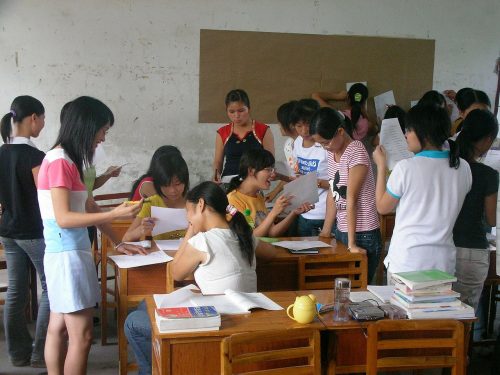
Teaching is one tough job. Not only that you need to report to school early five days a week, but you are also expected to bring out the best in every student. You teach them not only academic subjects but also other valuable lessons that are relevant in equipping the students to deal with the real world. Indeed, teachers are into a real big challenge. And the more that it becomes a challenge if there are students in your class who have special needs or mental health issues.
Students with mental health disorders are now being encouraged to study in the usual mainstream. Though this is found to be beneficial in the part of the student in terms of social skills, however, in the teacher’s part, this means more tasks that need to be done. Kids with mental health disorders have different needs and different means of learning compared to regular children. With this, teachers need to step out of their routinely learning drill just to accommodate the needs of a student with mental health disorder. And be able to deliver the learning the child needs.

Mental Health Disorders That Are Common Among Students
“Mental health issues can be caused by a combination of biological, psychological and environmental factors, and can have a minor or major impact on a person’s thoughts, feelings and behaviors,” explains Christina L. Gmyr, LMHC, NCC. Students with mental health issues seem to multiply these days. The common disorders identified in students at school are as follows: autism spectrum disorder, depression, attention deficit hyperactivity disorder, attention deficit disorder, anxiety, obsessive-compulsive disorder, eating disorders, conduct disorder and even substance abuse.
Since there is an alarming number of students having either of the disorder mentioned above, most schools have already elicited the help of counselors and therapist to understand these particular students. And as for the teachers, they also need a special kind of lesson plan to instill learning into these kids.
Recognizing Mental Health Disorders Among Students
Each disorder has its own unique set of indicators; thus teachers need to be very observant. “Mental health struggles are real. They can be painful. You may feel alone. In some of the darkest times, you may feel like something is “wrong” with you to the core. ” Erica Thompson, LMFT, LPCC explains. There are also some signs that are so oblivious that they cannot be detected that easily, therefore, the teacher must be open to their students so that the student can freely talk what is happening to her. The bottom line is that teachers must be vigilant and observant. Once they detect something off, they should immediately call the attention of the person in charge at school in terms of detecting mental health. And then contact the parents for confirmation.
How Teachers Help Students With Mental Health Disorders
To be effective in helping students with mental health disorders, it is recommended that teachers also do their homework in researching about the disorders. The school may have special training on this particular need, but still, teachers must find ways to deepen their knowledge further. Doing so will enable them to make ways on how to make teaching effective for them.
Below are some of the ways on How Teachers can be of Help to Students with Special Needs
- Situating students in strategic places
- Assign a buddy for that student
- Allowing beverages in class
- Allow tape recording
- Always provide a copy of notes for the student
- Give private feedback to the guardian regularly
- Particular kinds of test that is in accordance with the level of the student
- Allowing the use of some computer software to help him out with school work
- Allow test time extension
- Special set up during exams
- Having substitute assignments
- Allowing them to have their assignments in written form rather than encoded
- Having written assignments rather than oral assignments
- Giving an extension when submitting projects, papers, etc.
In addition to that, the teacher can send these kinds of student messages to encourage them further to do good in school. Teachers should also instill in these students that their grades will not define them. The mental health of these learners is more important than anything else. To become more effective in teaching kids with mental health issues, they should know the following:
- Know the signs of mental illness
- Seek help from a psychologist
- Have preventive techniques implemented
- Educate the students regarding mental health
- Have crisis counseling
- Allow students to discuss their trouble
- Encourage students to open up their emotions

Hindering Mental Health Development
Some teachers are not open to entertaining kids with mental health issues. These teachers are characterized as not welcoming, dropping grades, stressed, giving out negative comments and pouring out revenge on students when they report incidents to their parents. These teachers are considered bullies and are not eligible to handle kids with special needs.
Areas For Improvement
Most teachers would claim that they don’t have proper training when it comes to handling kids with special needs. However, this can be changed through training and awareness forums. Teachers should know the warning signs, what to do when certain situations occur and how to instill learnings into him.
What Can Parents Do
The very first thing parents can do is open their minds when the teachers call their attention over their child’s performance at school. Assess and find ways to help the teacher with her concern. Also, prepare the child every day. Make sure he had his medications, he’s away from anything that could upset him and have that positive outlook that will make the child optimistic as well.
“It’s important to underscore here the importance of monitoring your mental health and knowing how different medications and lifestyle changes can impact your mental health.” –Julia Hogan, LCPC